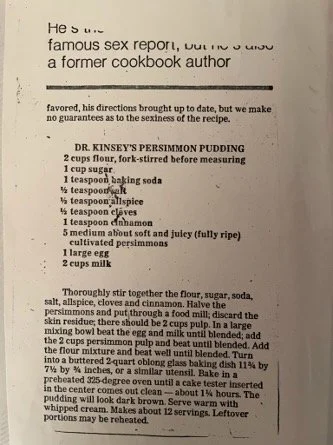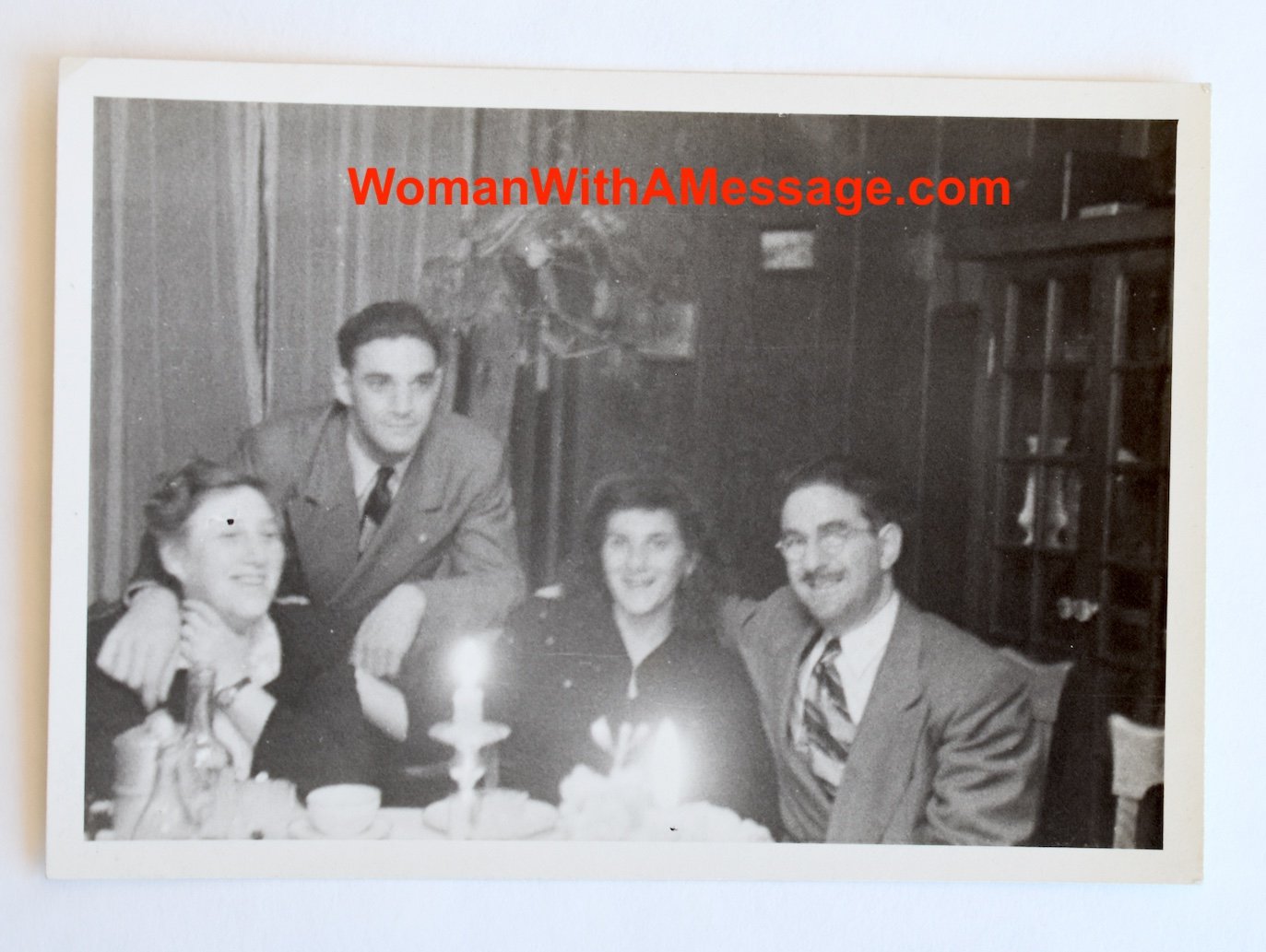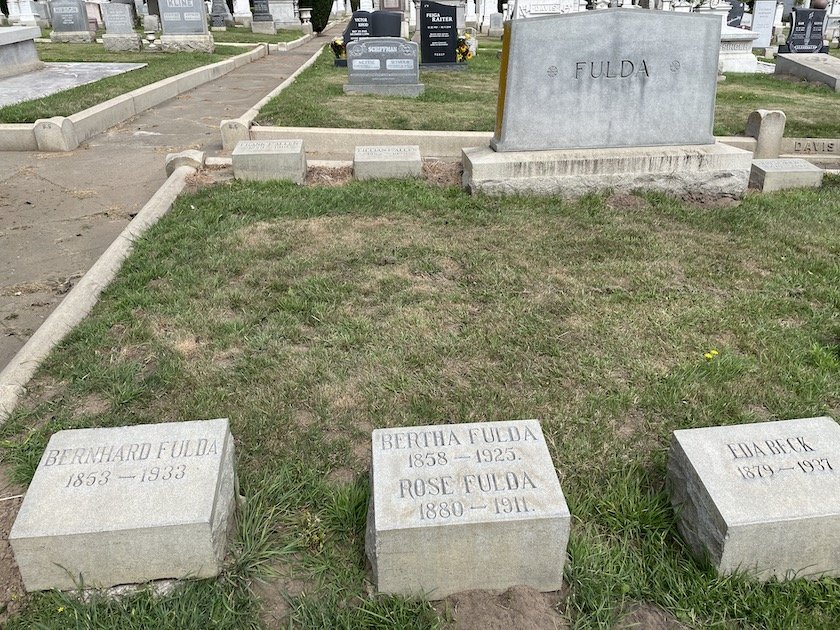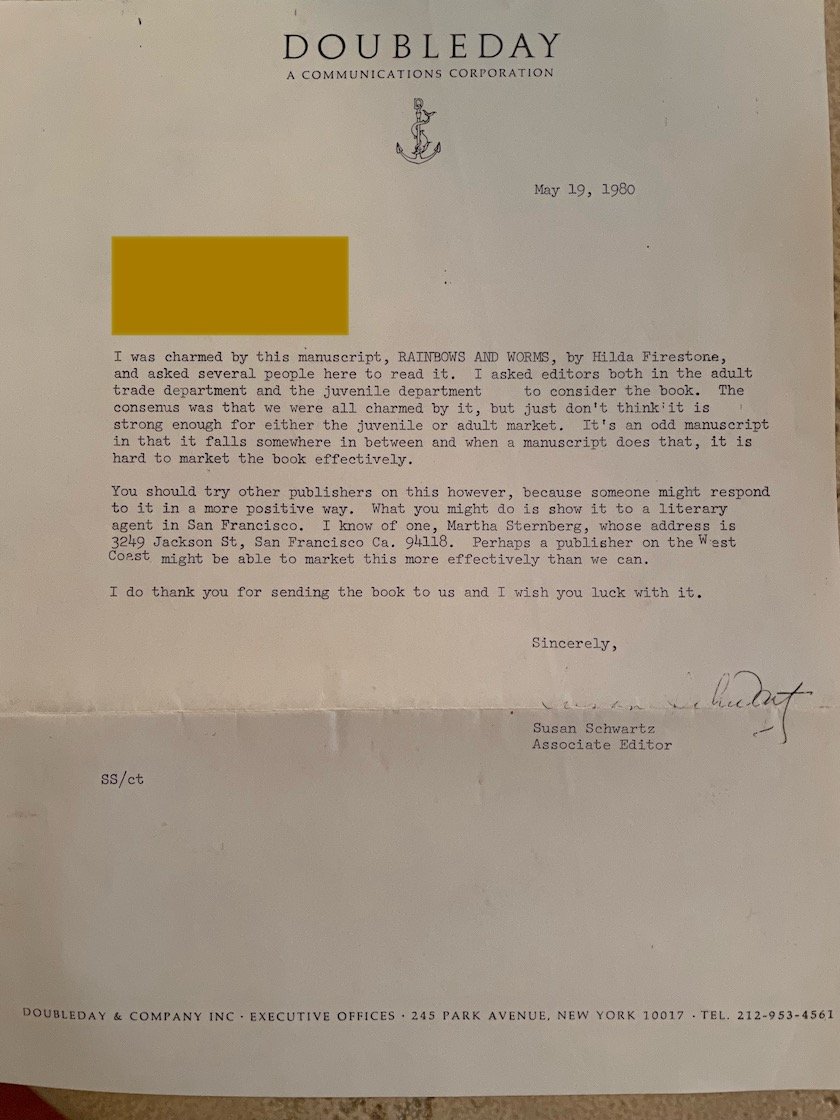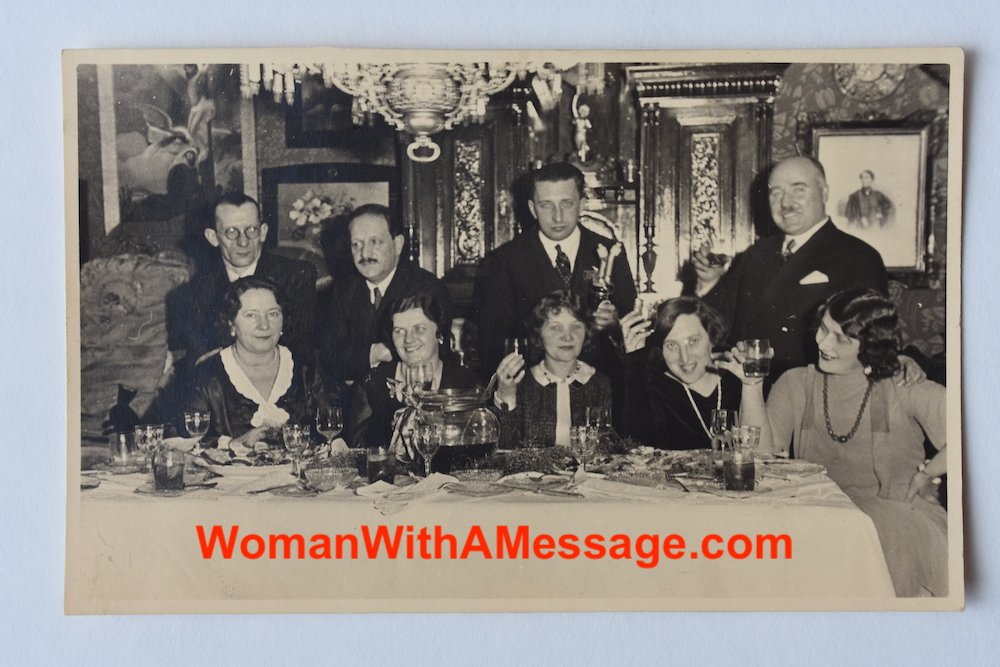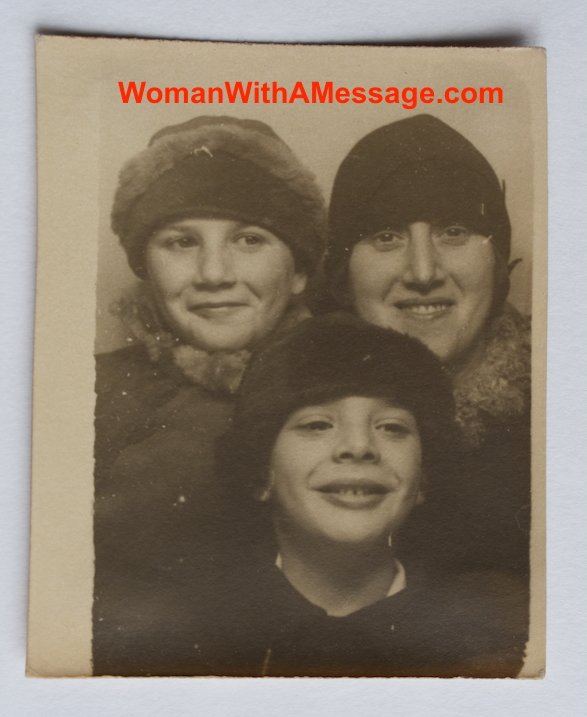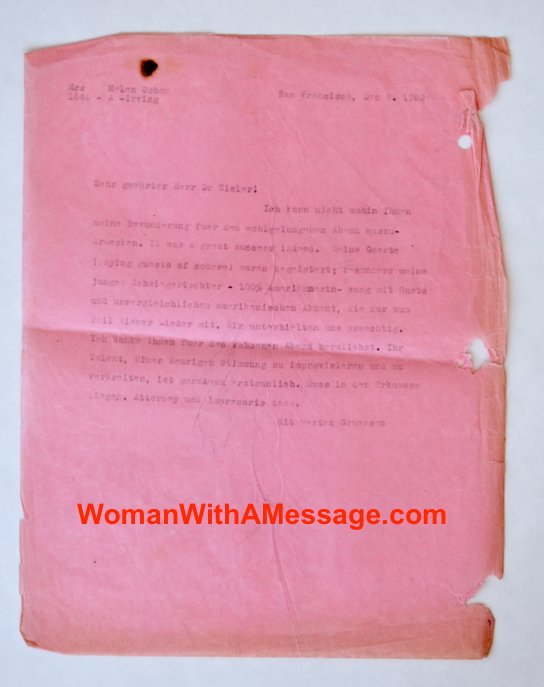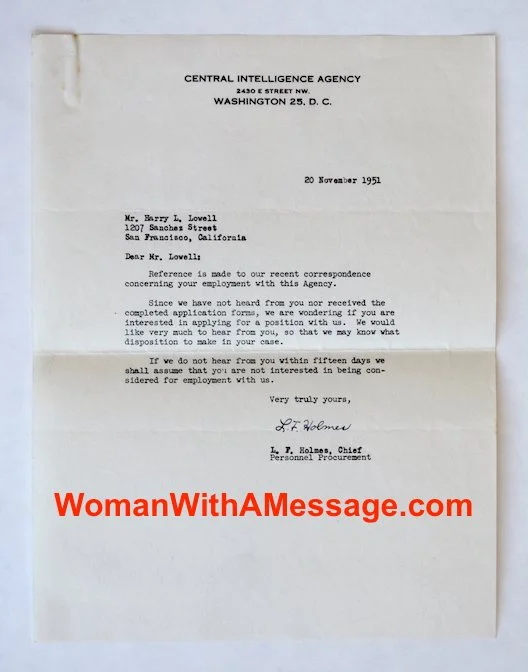“There is no greater sadness than to remember
the happy times amid the misery.”
Istanbul, 24 December 1945
My dear Robert!
When I received your letter filled with love, the first family letter in my exile, I cried for the first time since I’ve come under the radar. Today is almost predestined to hold my lost Paradise before my eyes. Do I not in spirit tear off a calendar page every day, and every day, every minute, every second, which I spend here without purpose, useless, and unhappy, did I not know that today is the day that I have chosen as the eve of a family week? Outside the sun shines as if it were May, only the sadly short days remind me that we are still deep in winter. The long nights are horrible, I fear them more than the Gestapo, blessed memories.
Robert, when I was ordered by the Command in Ravensbrück, along with 31 other respectable women on the 28th of February, to go to Turkey, none of us thought nor believed that we had been given freedom. I dared to ask what will happen with our men in Buchenwald and the “Political Superintendent” replied that he could give me no precise answer to this, but that he believed that we might meet them in Lübeck or in Sweden.
Our group waited five days for Turkish students living in various German university cities. On the fifth day came transport with about 150 persons, consisting of women, men, and children, Spanish Jews who lived all over the world, but who had been housed en famille in the Bergen-Belsen concentration camp. My courage and hope to be reunited with Vitali grew. We were transported via Flensburg-Copenhagen to Elsinore, from there to Sweden and Helsingborg where a reporter from a Stockholm newspaper promised to notify Eva. Through him it became known that I was in Sweden. From Helsingborg we were taken to Gothenborg, where we waited for diplomatic transport.
The general consuls of Vienna, Berlin, and Hamburg comforted me by saying that those from Buchenwald took another route and perhaps would be taken to Turkey via Marseille. My courage began to sink. Via Skagerak and Kattegat we went to Norway, then the Faroe Islands where we picked up internees from England, and from there to Liverpool (how close I was to you), Lisbon, Gibraltar, along the north African coast to Port Said then via the Dodekanese through the Dardenelles to Istanbul.
Vitali’s sisters, who had read my name in the newspaper immediately looked me up and overwhelmed me with questions. “Where is Vitali?” Why didn’t you bring him with you?” “How could you go away without him?” It was not meant as badly as it sounded. The people had, and have, no idea about what and how it was in Europe. When I finally managed to convince them that I was not responsible for world affairs they became nice and friendly with me. A feeling of friendship (hostility?) towards them, and also they towards me, has not been overcome. It is strange that I seem to not only have more rapport with the younger generation, but that I understand them better.
The difference between East and West is too enormous. Yesterday I received an answer to my inquiry to: Foreign Relations Department, British Red Cross & Order of St. John, Wimborne House Arlington 35 London SW 1. A MmeY. St. Martin Watts requested still more data that should help to make the finding of Vitali easier. For two months my completed and signed papers have been ready at the consulate; in the meantime, two ships have left without me; because of fatal circumstances my departure was prevented. Perhaps it is better so, perhaps before the departure of my ship I’ll hear some news of Vitali and I can answer the unspoken question: “Helen, where is Vitali? – Read: Cain, where is your brother Abel?” – I can give a joyful answer: He lives!
Robert, my dear dear boy, I have read your letter so often, and again, or more correctly, I’ve discovered a kind of “dislocation” of the heart and mind. You ask yourself, how all of you, who did not have to go through my suffering, can understand this through my eyes? I am so happy that each of you was spared this.
Love is a kind of Hydra, that for every head that you cut off grows nine new ones. Had I ten children and fifty nephews, my supply of love would not diminish, on the contrary it would overflow. (Pardon my pathetic style it is not intentional. I am no longer accustomed to writing letters and when I go from one extreme to another, I beg for your complete pardon.)
Robert, everything in this world has its price. I have paid the highest price for my good fortune. When I built a nice home for my children it was not just my thought, as it is with all mothers, that her children would have a better life than she herself had, but a vow that I made when I came back from a “relaxing vacation” in Brüx. It took weeks before I recovered from my recuperation trip. To see you freeze, I mean mentally, in the comfortable warm rooms, always cuts into my heart. Paul’s moody nature and your caring disposition are the results of an apparently brilliant, but joyless and loveless youth.
Your little mother did what and how she could. Robert how often have I longed in the last two years for that love, which, when I was still young and immature I scorned, because I believed I was being crushed by love. I also yearn for Vitali’s care, tutelage, and his desire to think of me.
Robert, perhaps it seems to you that I see my past life through rose-colored glasses. No Robert, believe me I was lucky that I could build myself up and that I did not fall into depression but was always mentally fully conscious. Paul can verify this for you; I talked with him about it once. I did not lead a Polykrates existence which an Egyptian king would have envied. On the contrary, I always said that I lived the purest life of the treasure seeker: “daily work, evening guests, unhappy times, joyful celebrations.” The joyful celebration is what I lived for: celebrations of all beliefs, birthdays, all were celebrated joyfully; my children should see only happy faces around them, enjoy music and happiness, eat well and much, “My fiery writing on the wall: Brüx.”
Robert, dear, as you have written me this dear and sweet letter, I believe that you were thinking of the same outing that Paul, you and I made from Brüx up to the Sauerbrunnen. As we passed a particular part of the marvelous row of chestnut trees, where a construction site was for sale at the time, one of us thought that we should build our family castle in the air at this place. We spun our wishful daydream further, until we came to the coffee house and lying there on a nice birch bench, we imagined everything down to the smallest detail. I remember this as clearly as if it were yesterday, and that an oncoming freight train brought us out of our day dream and forced us to think about our return trip. I glanced once more to the right to my beloved Borschen, one of them straight ahead at the church tower, whose song, “Enene, Enene” still rings in my ears today. When I take the next boat, I’ll be at the Aja Sofia in about 30 minutes and will think of the simple village church of Bilin and hear the bells chiming like the music of the spheres. Just as Wagner’s gods dreamed of their Walhalla, I dream with you of our home. The price that Vitali and I have paid does not seem too high to me. When the children left home, I did away with all birthdays and holidays, that is, I postponed them and said inwardly that we will celebrate them later. There are now so many to catch up on and with the new ones that must be celebrated, then our reunion will be one joyful celebration after another, as the magic word, my magic word rings.
I have apologized for my jumping around, but I’m not quite as crazy as I seem after this letter, but it is impossible to keep one’s thoughts straight when one shares a single room with 8 strangers and one sleeps in the same room with them, and each of the 8 receives visitors and they converse in a motley of strange languages.
Do you know that I only found out by pure chance that Eva is married and that only just now after months at the consulate I was told the name of my son-in-law? Everl wrote a short letter to her cousin Lisette De Sevillja in May in which announced that she married on the 13th of January (Harry’s birthday), that she thinks I’m in Sweden and that Harry is still in the South Pacific. Robert that is all I know about my children. Wasn’t old Galotti right when he said, “He who does not lose his sanity in these circumstances has nothing to lose.” In my whole life I have never heard so much talking as here, and have spoken so little myself. I find it merciful to live in this Babel. I’m in the greatest company. A young Greek woman was reading her Shakespeare, a fine Oxford edition, next to her Glossary. At night I give myself concerts, I hum my Beethoven, my Mozart, my Schubert. I only here learned to understand the Wanderer Symphony: where you are not, there is happiness. Beethoven never let his audience go home in a gloomy mood; therefore, let us both sing with a different note: joy, beautiful spark of the gods -- or is it still too early. Since I’ve been here, I’ve heard no word more often than “patience,” I live with it. Robert, perhaps we will see each other before this letter reaches you.
Please greet and thank Otto and Kamilla for me, I myself kiss you with unbroken love.
Helen
